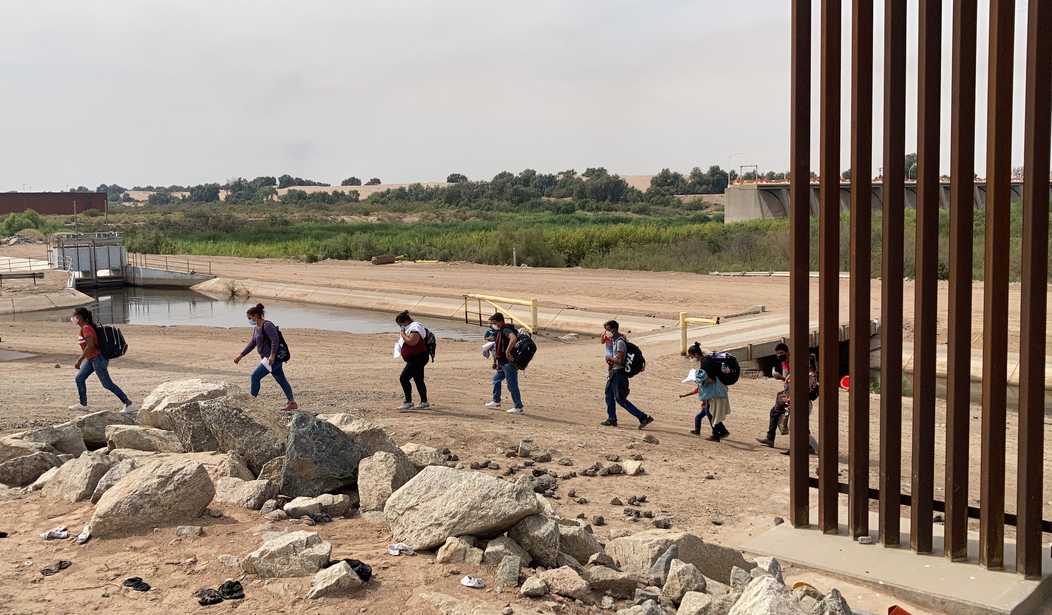Since President Biden took office, Americans views on immigration have changed, and they're not trending the way Biden might have expected.
As a result of the surge of illegal immigrants across an unsecured southern border, the number of Americans wanting to reduce the number of immigrants has swelled. According to a Gallup survey in July, 38 percent of Americans now say the United States should allow fewer immigrants into the country compared to 31 percent who want it kept at the current level while 27 percent think the number of immigrants should be increased. Meanwhile, 70 percent of Americans say immigration in general is a benefit to the United States, the lowest level for that metric 2014.
The U.S. remains highly fractured over immigration policy, with 27% of Americans saying immigration should be increased, 31% preferring that it be kept at the current level and 38% wanting it decreased. https://t.co/FX57Jpw6cS
— GallupNews (@GallupNews) August 8, 2022
As Gallup notes, the latest numbers "mark a return to more Americans wanting immigration decreased rather than increased." Interestingly, Gallup's survey did not specify whether "immigration" meant illegal or legal immigration — the interpretation was left up to respondents which makes the poll less helpful.
Here's how Americans' views changed in the last two years, roughly overlapping with Biden's time in office, and under previous administrations:
Americans' support for expanding immigration reached its all-time high of 34% two years ago and held there, at 33%, in 2021, before dipping to this year's 27%. Over the same two-year period, the desire to see immigration decreased has risen 10 points from its all-time low of 28%.
The preference for decreased immigration was highest in 1993 and 1995, at 65%. This coincided with a bipartisan focus on immigration, with then-President Bill Clinton pushing for strengthening border control and curtailing the hiring of migrants who entered the U.S. illegally, and the Republican governor of California at the time, Pete Wilson, supporting a statewide proposition that would exclude migrants there illegally from access to public services.
After dropping to 38% by 2000, Americans' desire for less immigration surged to 58% in October 2001. This was in the immediate aftermath of the 9/11 terrorist attacks, carried out by men who were in the U.S. on nonimmigrant tourist, work or student visas.
Close to half of Americans typically continued to want less immigration through 2010, but no more than about four in 10 have since held that view.
Recommended
Even among Democrats, the preference for less immigration has ticked up four points since President Biden took office while Republican preference for a reduction in immigration levels has surged more than 20 points in the same time frame.
Previous Gallup surveys found in March that "18% of Democrats, 39% of independents and 68% of Republicans saying they worry 'a great deal' about illegal immigration" and a July poll found "15% of Republicans versus 3% of independents and less than 1% of Democrats identifying illegal immigration as the most important problem facing the country."
As Gallup concludes in its report on the results, the "border crisis of recent years has sparked a highly partisan debate about how to handle the large demand for entry to the U.S. from Central and South America, and that is likely affecting Americans' views toward immigration," but "the country as a whole is sharply torn on the issue."

























Join the conversation as a VIP Member